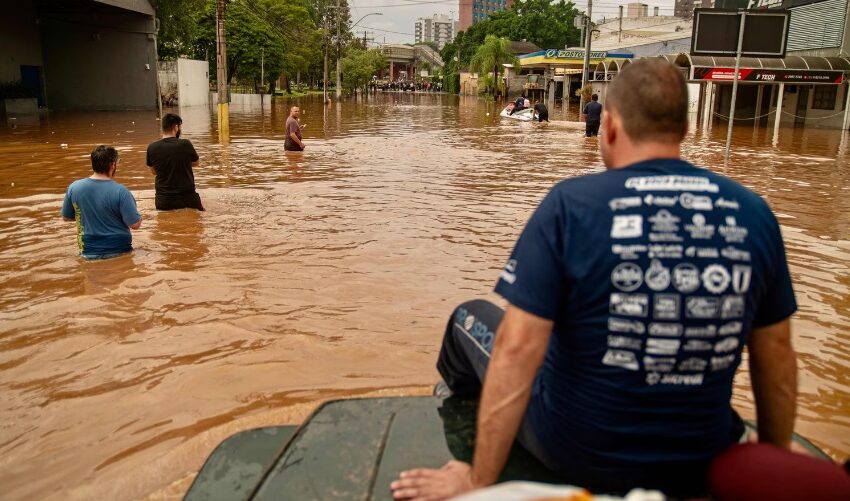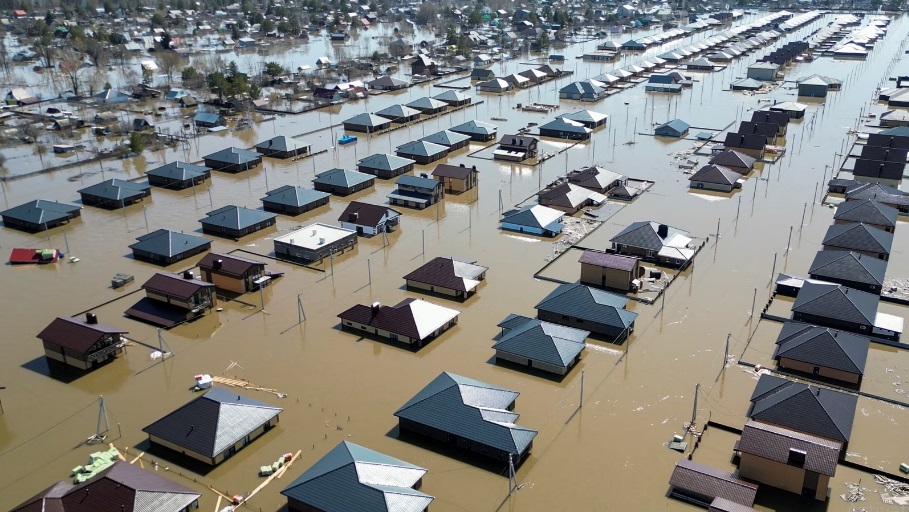
Deadly Brazil Floods: 57+ Killed, 70k Displaced in Heavy Rain and Landslides
The heavy rain and flooding in parts of Brazil forced 70,000 people out of their homes, with over 57 killed till now.
Severe rain in Brazil caused dangerous floods and mudslides in many cities. The civil defense agency reported over 57 deaths and 70,000 people had to leave their homes. Many others are still missing, and 74 people got hurt. In Rio Grande do Sul, water levels rose quickly, stressing dams and drainage systems. This also affected business in Porto Alegre, an important city economically.
According to the data mentioned in the civil defence reports of Brazil, over 370 people are missing due to the heavy flooding and landslides in the country. The floods, in totality, impacted 281 municipalities in the country.
The Guaiba River, which flows through the city, is at a historic high of 5.04 meters (16.5 feet), well above the 4.76 meters that had stood as a record since the devastating 1941 floods.
Brazil floods: Top points

Nearly 70,000 people have been forced out of their homes amid deadly flooding, mudslides and torrential storms in southern Brazil, with the major city of Porto Alegre particularly hard-hit.
The intense rain in Brazil this week led to severe flooding in Rio Grande do Sul, which borders Uruguay and Argentina. This resulted in landslides, mudslides, and a dam partially collapsing. Another dam at a hydroelectric plant is also in danger of collapsing due to the strain.
The international airport in Porto Alegre has suspended all international flights due to the severe conditions of the city. The Guaiba River spilled over onto the roads, inundating streets.
Rio Grande do Sul Governor Eduardo Leite said his state — normally one of Brazil’s most prosperous — would need a “Marshall Plan” of heavy investment to rebuild after the catastrophe.
The authorities have warned the citizens that the situation “is likely to get worse”, with waters starting to overtop a dike along another local river, the Gravatai. People have been asked to ration their water and food supplies as four out of the six water treatment plants in the city are now closed.
Residential areas were underwater, with roads destroyed and bridges swept away by powerful currents. Roughly, a third of the displaced have been brought to shelters set up in sports centers, schools and other facilities.


